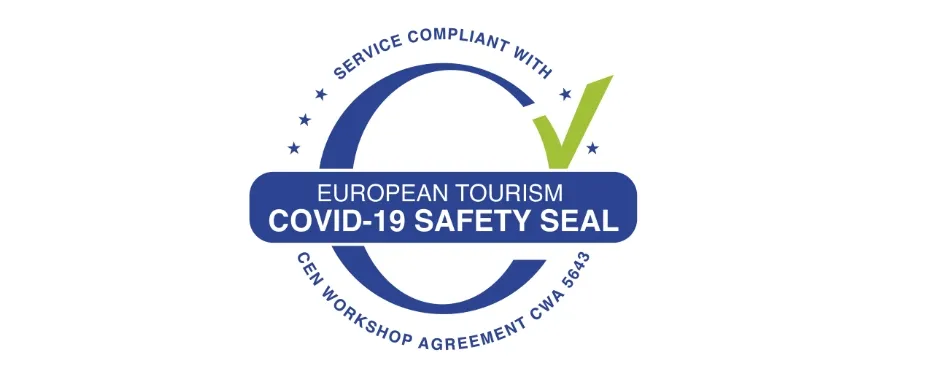Tourism in a Covid-19 world

One of the hardest-hit sectors in the current pandemic, tourism provides one in ten jobs worldwide and a significant percentage of many countries’ GDP, holding the livelihoods of many millions of people in its hands. What’s more, it often funds other areas such as wildlife conservation, culture and heritage sites.
Are you looking forward to serene and well-deserved summer holidays abroad, after the long months of lockdowns? Look no further: standards can help reopen tourism safely and quickly! The new 'European Tourism COVID-19 Safety Seal' has been now published. The seal is set out by two CEN Workshop Agreements (CWAs) as part of the 5643 series, developed by the CEN Workshop EUROSAFETOUR.
This package consists of two parts:
- CWA 5643-1 ‘Tourism and related services — Requirements and guidelines to prevent the spread of Covid-19 in the tourism industry;
- CWA 5643-2 ‘Tourism and related services — Requirements and guidelines to prevent the spread of Covid-19 in the tourism industry – European visual identity'
In collaboration with ISO (the International Organization for Standardization), CEN adopted ISO/PAS 5643 and turned it into the first part of this series. This part establishes requirements and recommendations for tourist organizations to prevent the spread of coronavirus SARS-CoV-2 and protect their employees’ health from COVID-19 and to provide safer tourist services and products to tourists and residents. Furthermore, the second part provides a visual identity to be displayed by European tourism establishments and services, in accordance with CWA 5643-1, and provides requirements and guidance on the use of the visual identity.
The ‘European Tourism COVID-19 Safety Seal’ comes in time for the summer season and can improve safety procedures in tourism businesses and increase the trust of travelers and tourists who choose the EU as a destination.
Together with the European Commission, CEN firmly believes the ‘European Tourism COVID-19 Safety Seal’ will be a vital tool for the safe reopening of the tourism sector and to restore the trust of consumers.
Maria Cruz Cádiz, Convenor of the working group, said: “There is no guarantee the world will return to how it was before, and unpredictability has become the norm. The purpose of these guidelines is to support the industry in being agile and prudent, to be able to welcome visitors again in the best possible conditions, as a means of rebuilding trust and keeping everyone safe and secure.”
These guidelines have a broad scope and will help all providers in the sector (accommodation, museums, transport, experiences, activities and guides) to ensure safer services and prevent the spread of the virus. It is designed to help tourism providers implement the best measures for everyone’s safety and reassure tourists of the effectiveness of what they have in place.
These guidelines help industry players identify and implement measures that reduce the spread of the epidemic, taking into account the different protocols worldwide.
Maria Cruz Cádiz, Convenor of the working group, said it includes requirements and recommendations to protect not just tourists but locals and tourism provider employees as well.
“It is also flexible and comprehensive enough to be adapted to any kind of organization, including SMEs,” she said.
The recommendations are therefore relevant to everything from accommodation establishments, restaurants, beaches and parks, transport companies, tour guides, spas, museums and heritage sites, the conference and events industry, to travel and tourism operators and more.
